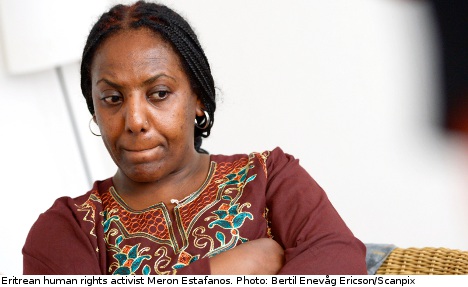“It would have been good had they at least got the year that the prosecutor had demanded,” Meron Estafanos, who is a journalist and human rights activist, said.
The two men, aged 21 and 18, were sentenced to a month in prison with probation, and probation respectively despite prosecutor calls for a “severe sentence”.
The kidnappers, who are reported to be Swedish nationals of middle eastern descent, demanded that the woman pay them $33,000.
If she failed to come up with the money, they threatened to kill a man, reported to be her cousin, who lived in Egypt. The man later died following the torture.
Eritreans living in Sweden are routinely targeted by kidnappers who blackmail them into paying for the freedom of relatives and fellow nationals.
This case is reported to be unusual because the accomplices of the kidnappers were in Sweden and the trial is thought to be the first time anyone involved with such torture-blackmail plots has been put on trial in the western world.
Pressure is mounting on the Swedish government to act to intervene in the situation which is proving to be a very lucrative trade in human beings in the region.
Thousands of Eritreans are thought to have been tortured and killed in Bedouin camps in the Sinai peninsula and several Swedish-Eritreans have been blackmailed for ransoms running into thousands of dollars.
TT/The Local/pvs



 Please whitelist us to continue reading.
Please whitelist us to continue reading.
Member comments